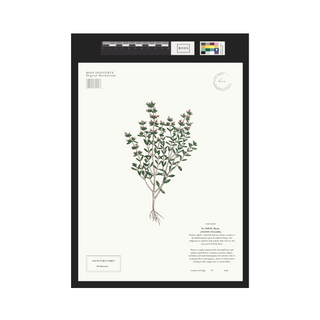Thyme held symbolic and cultural significance in ancient Greece and Rome. It was associated with courage, strength, and purification. It was used as a symbol of bravery and was often burned as an incense during religious ceremonies and rituals. Thyme was also used as a symbol of respect and honor, with soldiers and athletes being adorned with thyme wreaths.
During the Middle Ages, thyme gained further cultural significance. It was believed to have mystical properties and was associated with protection, purification, and the divine. It was often included in herbal amulets and carried for good luck and warding off evil spirits. Thyme was also used in various medicinal remedies and believed to have healing properties.
Thyme has been associated with folklore and superstitions in different cultures. In some traditions, it was believed that thyme planted in a garden would bring good luck and ward off negative energies. Thyme was also used as a charm to ward off witches and evil spirits.
Thyme has been an essential culinary herb in many cuisines, including Mediterranean, Middle Eastern, and European. Its cultural significance lies in its use as a flavoring agent in traditional dishes and its association with the rich culinary traditions of various cultures.
Thyme has a long history of use in traditional medicine. It has been used for its potential medicinal properties, including as a digestive aid, antimicrobial agent, and respiratory tonic. In some cultures, thyme-infused teas and remedies are still used today for their health benefits.





